-
 bitcoin
bitcoin $87959.907984 USD
1.34% -
 ethereum
ethereum $2920.497338 USD
3.04% -
 tether
tether $0.999775 USD
0.00% -
 xrp
xrp $2.237324 USD
8.12% -
 bnb
bnb $860.243768 USD
0.90% -
 solana
solana $138.089498 USD
5.43% -
 usd-coin
usd-coin $0.999807 USD
0.01% -
 tron
tron $0.272801 USD
-1.53% -
 dogecoin
dogecoin $0.150904 USD
2.96% -
 cardano
cardano $0.421635 USD
1.97% -
 hyperliquid
hyperliquid $32.152445 USD
2.23% -
 bitcoin-cash
bitcoin-cash $533.301069 USD
-1.94% -
 chainlink
chainlink $12.953417 USD
2.68% -
 unus-sed-leo
unus-sed-leo $9.535951 USD
0.73% -
 zcash
zcash $521.483386 USD
-2.87%
Best exchange for Bitcoin futures trading
Bitcoin futures allow traders to bet on Bitcoin's future price without owning the asset, offering leverage but carrying high risks like liquidation.
Jul 22, 2025 at 08:49 am
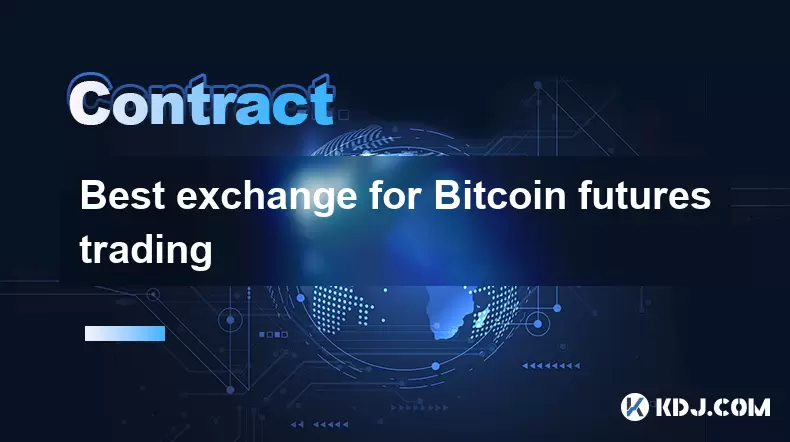
Understanding Bitcoin Futures Trading
Bitcoin futures trading allows investors to speculate on the future price of Bitcoin without owning the underlying asset. These financial instruments are contracts that obligate the buyer to purchase Bitcoin (or the seller to sell Bitcoin) at a predetermined price and date. The green bold term 'Bitcoin futures' refers to agreements traded on regulated exchanges, where participants can take long or short positions based on their market outlook.
Exchanges offering Bitcoin futures typically provide leverage, enabling traders to control larger positions with a smaller amount of capital. However, this also increases the risk of liquidation. It's crucial to understand how margin trading works and the implications of using leverage before entering the market.
Key Features to Consider in a Bitcoin Futures Exchange
When selecting the best exchange for Bitcoin futures, several critical features must be evaluated:
- Liquidity: High trading volume ensures smoother entry and exit points, reducing slippage.
- Security: The exchange should have robust security protocols, including cold storage and two-factor authentication.
- User Interface: A clean and intuitive trading interface is essential for both novice and experienced traders.
- Fees: Transaction and funding fees vary across platforms, so comparing fee structures is important.
- Regulatory Compliance: Exchanges operating under financial authorities tend to offer more legal protection.
Each of these factors plays a role in determining the overall reliability and usability of the platform for Bitcoin futures trading.
Top Exchanges for Bitcoin Futures Trading
Several exchanges have emerged as leaders in the Bitcoin futures space due to their performance, features, and reputation:
- Binance Futures: Known for its high liquidity and wide range of trading pairs, Binance Futures supports up to 125x leverage. It also offers a robust risk management system.
- Bybit Derivatives: Bybit provides a user-friendly interface, fast execution, and up to 100x leverage on Bitcoin futures contracts.
- OKX Futures: OKX supports multiple contract types, including inverse and linear futures, with customizable leverage settings.
- BitMEX: One of the earliest platforms to offer Bitcoin futures, BitMEX is popular for its advanced trading tools and deep liquidity pools.
- Huobi Futures: Huobi offers a comprehensive trading environment with a variety of order types and risk controls.
Each of these platforms has unique advantages, and the choice depends on the trader’s specific needs and experience level.
How to Open a Bitcoin Futures Position
Opening a Bitcoin futures position involves several steps:
- Create an Account: Register on the chosen exchange and complete the Know Your Customer (KYC) verification process.
- Deposit Funds: Transfer either fiat currency or cryptocurrency into your trading account. Most futures platforms require crypto deposits.
- Select Contract Type: Choose between perpetual contracts (no expiry date) or quarterly futures (with a set expiry).
- Set Leverage: Adjust the leverage level according to your risk tolerance. Higher leverage increases both potential gains and losses.
- Place Order: Use limit or market orders to enter a long or short position based on your market analysis.
- Monitor Position: Keep track of your open positions and margin levels to avoid liquidation.
Traders should also be familiar with funding rates, which are periodic payments made to maintain open positions in perpetual futures contracts.
Managing Risk in Bitcoin Futures Trading
Risk management is essential in Bitcoin futures trading due to the asset’s volatility. Traders should implement the following strategies:
- Use Stop-Loss Orders: These automatically close a position when the price reaches a certain level, limiting potential losses.
- Avoid Overleveraging: Using excessive leverage can lead to rapid liquidation, especially in volatile markets.
- Diversify Positions: Avoid putting all capital into a single trade. Consider hedging strategies or trading multiple assets.
- Stay Informed: Follow market news, regulatory developments, and macroeconomic factors that can influence Bitcoin prices.
- Backtest Strategies: Before trading with real funds, test your strategy using historical data or a demo account.
Failure to manage risk appropriately can lead to significant financial losses, especially when trading with leverage.
Frequently Asked Questions
What is the difference between Bitcoin spot and futures trading?Spot trading involves buying or selling Bitcoin at the current market price, with immediate delivery. Futures trading involves contracts that speculate on future prices without owning the actual asset.
Are Bitcoin futures legal in all countries?No, the legality of Bitcoin futures trading depends on the jurisdiction. Some countries regulate and license futures exchanges, while others restrict or ban cryptocurrency trading altogether.
Can I trade Bitcoin futures with fiat currency?Most Bitcoin futures platforms require deposits in cryptocurrency, such as USDT or USD Coin (USDC). Few platforms allow direct fiat deposits for futures trading.
What happens when a Bitcoin futures contract expires?Upon expiration, the contract is settled in cash or cryptocurrency, depending on the exchange and contract type. Quarterly futures contracts settle on predetermined dates, while perpetual contracts roll over indefinitely.
Disclaimer:info@kdj.com
The information provided is not trading advice. kdj.com does not assume any responsibility for any investments made based on the information provided in this article. Cryptocurrencies are highly volatile and it is highly recommended that you invest with caution after thorough research!
If you believe that the content used on this website infringes your copyright, please contact us immediately (info@kdj.com) and we will delete it promptly.
- Super Bowl LX: Teddy Swims, Green Day, and a Legacy Toss Set for 2026 Extravaganza
- 2026-02-05 07:20:02
- Fantasy Football Premier League Round 25: Key Player Picks, Tips, and Advice for Optimal Team Performance
- 2026-02-05 07:15:02
- Remittix Launches PayFi Platform with a Generous 300% Bonus Offer, Driving Investor Excitement
- 2026-02-05 07:05:01
- FirstEnergy Plants Thousands of Trees, Cultivating Greener Communities Across Six States
- 2026-02-05 07:15:02
- Big Apple Bets: Unpacking the Latest No Deposit Bonus, Casino Bonus, and Free Spins Frenzy
- 2026-02-05 07:10:01
- Nubank, Enova, and Interactive Brokers: Navigating the Future of Finance
- 2026-02-05 07:10:01
Related knowledge

How to Manage Emotions and "Revenge Trading" in Futures?
Feb 05,2026 at 12:19am
Understanding Emotional Triggers in Futures Markets1. Market volatility directly impacts psychological states, often amplifying fear or euphoria based...

How to Analyze Market Sentiment Using the Fear and Greed Index?
Feb 05,2026 at 07:40am
Understanding the Fear and Greed Index1. The Fear and Greed Index is a composite metric designed to quantify prevailing emotional states among cryptoc...
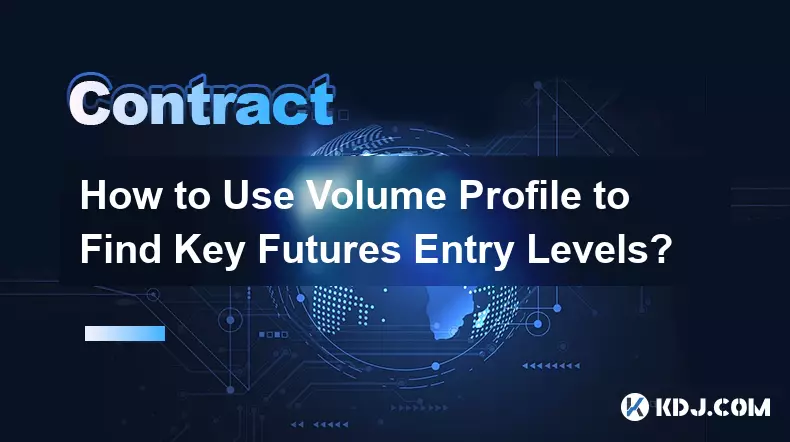
How to Use Volume Profile to Find Key Futures Entry Levels?
Feb 04,2026 at 11:39pm
Understanding Volume Profile Structure1. Volume Profile displays the distribution of traded volume at specific price levels over a defined time period...
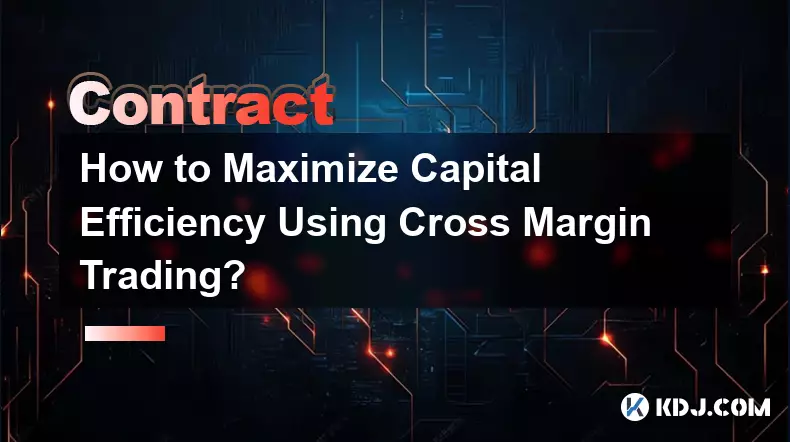
How to Maximize Capital Efficiency Using Cross Margin Trading?
Feb 05,2026 at 12:40am
Cross Margin Trading Fundamentals1. Cross margin trading allows traders to use their entire account balance as collateral for open positions across mu...
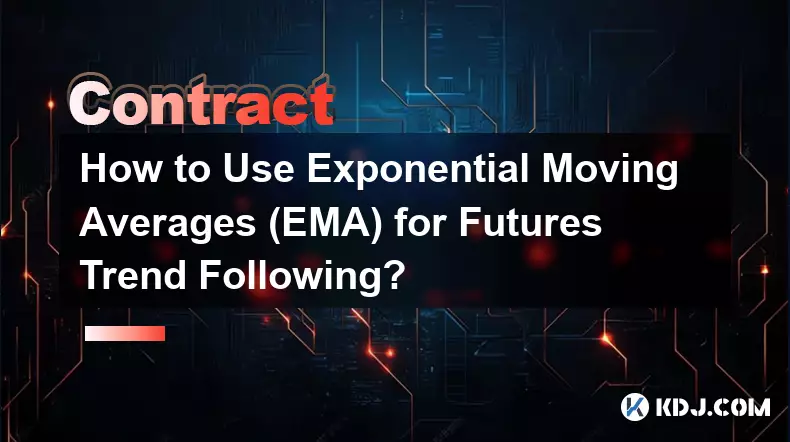
How to Use Exponential Moving Averages (EMA) for Futures Trend Following?
Feb 05,2026 at 04:40am
Understanding EMA Mechanics in Futures Markets1. Exponential Moving Averages assign greater weight to recent price data, making them more responsive t...
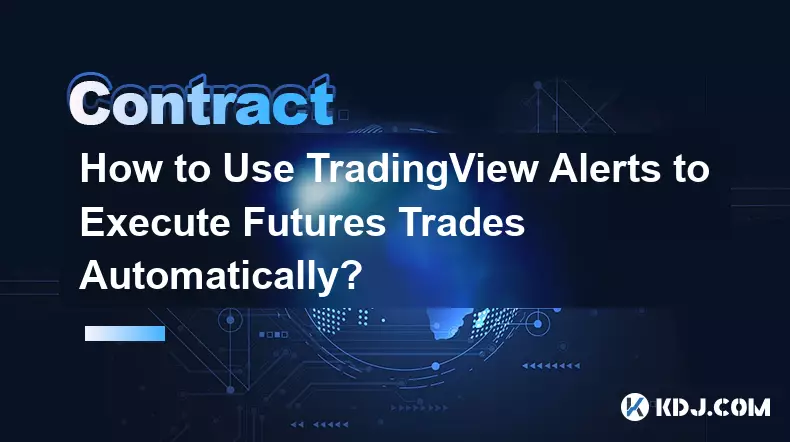
How to Use TradingView Alerts to Execute Futures Trades Automatically?
Feb 04,2026 at 09:00pm
Setting Up TradingView Alerts for Futures Contracts1. Log into your TradingView account and open the chart of the desired futures instrument—such as B...

How to Manage Emotions and "Revenge Trading" in Futures?
Feb 05,2026 at 12:19am
Understanding Emotional Triggers in Futures Markets1. Market volatility directly impacts psychological states, often amplifying fear or euphoria based...

How to Analyze Market Sentiment Using the Fear and Greed Index?
Feb 05,2026 at 07:40am
Understanding the Fear and Greed Index1. The Fear and Greed Index is a composite metric designed to quantify prevailing emotional states among cryptoc...

How to Use Volume Profile to Find Key Futures Entry Levels?
Feb 04,2026 at 11:39pm
Understanding Volume Profile Structure1. Volume Profile displays the distribution of traded volume at specific price levels over a defined time period...

How to Maximize Capital Efficiency Using Cross Margin Trading?
Feb 05,2026 at 12:40am
Cross Margin Trading Fundamentals1. Cross margin trading allows traders to use their entire account balance as collateral for open positions across mu...

How to Use Exponential Moving Averages (EMA) for Futures Trend Following?
Feb 05,2026 at 04:40am
Understanding EMA Mechanics in Futures Markets1. Exponential Moving Averages assign greater weight to recent price data, making them more responsive t...

How to Use TradingView Alerts to Execute Futures Trades Automatically?
Feb 04,2026 at 09:00pm
Setting Up TradingView Alerts for Futures Contracts1. Log into your TradingView account and open the chart of the desired futures instrument—such as B...
See all articles










































































